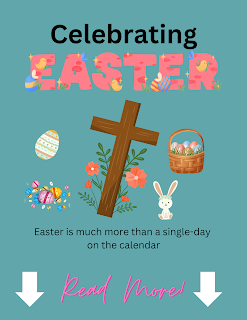 The holiday season is often viewed as a time of joy, togetherness, and celebration. However, in recent years, growing conversations have emerged questioning whether some traditional holiday practices align with modern values. From sustainability concerns to the need for cultural inclusivity, these discussions are prompting many to reflect on the ways we celebrate—and whether it's time for a meaningful change.
The holiday season is often viewed as a time of joy, togetherness, and celebration. However, in recent years, growing conversations have emerged questioning whether some traditional holiday practices align with modern values. From sustainability concerns to the need for cultural inclusivity, these discussions are prompting many to reflect on the ways we celebrate—and whether it's time for a meaningful change.
One of the most significant criticisms of traditional holiday celebrations is their environmental toll. Every year, millions of tons of wrapping paper, packaging, and single-use decorations end up in landfills. Add to that the carbon footprint from mass production of gifts, long-distance shipping, and energy-intensive lighting displays, and the environmental impact of the holidays becomes staggering.
Many are now advocating for more sustainable practices, such as using recycled or reusable gift wraps, opting for energy-efficient LED lights, and choosing locally-made or second-hand gifts. Others are shifting focus entirely, replacing material gifts with experiences like shared meals, event tickets, or donations to charitable causes.
Cultural Appropriation and Holiday Celebrations
As societies become increasingly diverse, there is growing scrutiny of certain holiday traditions that may perpetuate cultural stereotypes or exclusion. Some long-standing customs have roots in colonialism or exploit indigenous practices, raising questions about their place in today’s celebrations.
For example, some winter festivals borrow symbols or rituals from non-dominant cultures without acknowledgment or respect. Critics argue that while borrowing traditions can foster understanding, it’s essential to do so with awareness and a commitment to honoring their origins. This includes learning about the history behind traditions, supporting creators and businesses from those cultures, and ensuring celebrations remain respectful.
The Pressure of Perfectionism and Consumerism
For many, the holidays have become synonymous with stress rather than joy. The pressure to find the perfect gifts, host flawless gatherings, and keep up with elaborate decor trends can detract from the season's intended spirit. This consumer-driven mentality often leads to financial strain, burnout, and disappointment.
To counter this, some are embracing minimalist holiday approaches. Scaling back on gift-giving, prioritizing meaningful activities over extravagant displays, and setting realistic expectations can help reduce stress and return the focus to gratitude, connection, and giving.
Rethinking Inclusivity in Holiday Celebrations
Another aspect of rethinking traditions is ensuring inclusivity in holiday practices. In workplaces, schools, and communities, there is increasing recognition that not everyone celebrates the same holidays. While Christmas may dominate many cultural narratives, people of different faiths and backgrounds observe Hanukkah, Kwanzaa, Winter Solstice, and other celebrations during this season.
To foster inclusivity, organizations, and families can create spaces where diverse traditions are honored and celebrated. This might include hosting multicultural holiday events, educating others about various traditions, or incorporating elements from multiple cultures into gatherings.
Preserving What Matters Most
While the debates around holiday traditions are often contentious, they also present an opportunity to reflect on what the season truly means. At its core, the holidays are about love, connection, and gratitude—values that transcend specific practices. Reimagining traditions isn’t about erasing the past but about ensuring that celebrations align with our evolving values and create a positive impact for all.
If you’re seeking ways to celebrate sustainably and thoughtfully this season, consider exploring gifts that are eco-friendly, meaningful, and economical. Online retailers like Pawsitive Balance Boutique offer products that combine mindfulness, love for pets, and an emphasis on harmony. Their offerings make thoughtful, sustainable gifts for pet lovers and help reduce the environmental footprint of your holiday celebrations.




